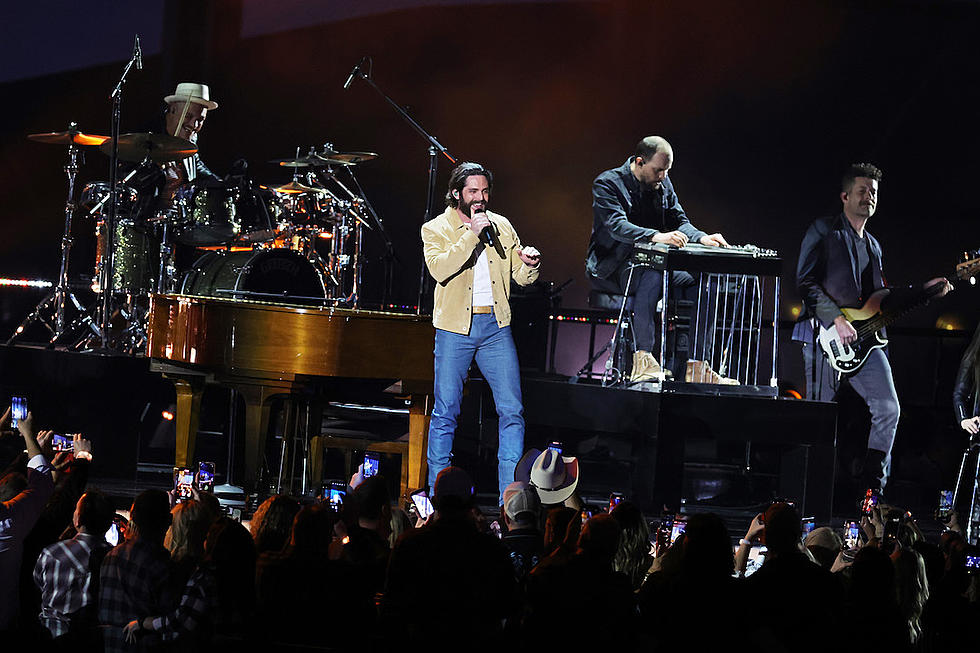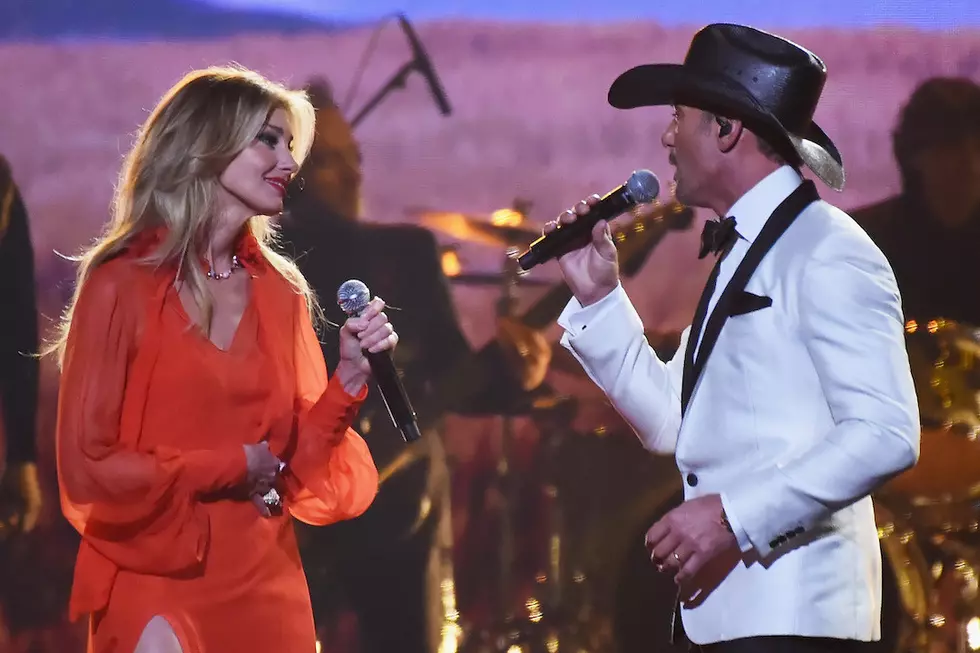
Thomas Rhett Reveals What’s ‘Scary’ to Him About ‘Where We Started’ Title Track
Hard-working artists who are involved in every aspect of their music are prone to over-analyzing every line, riff and detail, and Thomas Rhett is no exception. The singer freely admits that he's got a tendency to overthink during his album-making processes.
In fact, he says, it's a good thing that Where We Started had a hard and fast due date, or else the album may never have come out at all.
"To be honest with you, I still don't think it's finished," Rhett tells Taste of Country and other outlets with a laugh, just days before the album's release date on Friday (April 1).
That's not because the project is rushed — on the contrary, he's been working tirelessly on perfecting these songs for months. "But I think as an artist you never get to a point where you're fully there, because I think most artists are perfectionists and over thinkers at our core," the singer explains. "... At some point, you have to just let it go and let it do what it's going to do."
Rhett credits his musical team with helping him realize when an album's finished, and he's also been a country artist long enough to know that sometimes a light touch works best. But stepping away from a piece of music is still nerve-wracking, especially when — as is the case on Where We Started's title track, a duet with Katy Perry — he decides to adopt a "less is more" approach with the production.
"The scary thing about that song is it's exactly the same as the demo, which never happens for me," Rhett continues. "Where We Started" is a soulful, R&B-inflected soul jam. So much so, in fact, that it might be one of his most genre-stretching songs to date — and he's made a career out of genre-stretching songs. The singer recounts trying to record the song "50 different ways," from a simple piano and vocal version to "tracking it like how Tom Petty may have done it," but noting worked, until Rhett got the idea to use the original demo track loop.
Over the course of his pandemic-induced time off the road, he has gotten more comfortable sharing demos with fans. In fact, multiple songs on Where We Started might be familiar to fans who first heard them a year or two ago on Instagram, with Rhett accompanying himself on acoustic guitar and singing at home.
Letting fans into his songwriting process shaped the album, but those demos had downsides, too. "I had a conversation about this literally today, about how much of a blessing and a curse it is to play demos for people," he explains.
The singer first got hit by the "curse" part of that equation early on in his career, when he was readying the release of "Die a Happy Man" — a song he wrote about his wife Lauren, which would go on to arguably become the biggest song of his career.
"I'll never forget, I played my wife the demo of 'Die a Happy Man' six years ago. It was me playing it on an acoustic guitar at 2AM on the bus. And she fell in love with that version," Rhett recalls. "Then when it got recorded in the studio, she hated it. She called [producer] Dann Huff and said, 'You have to change the production.' And my wife has never done that on a song before."
"So it's got me thinking about all the teasing that's happening in our genre right now," the singer says, explaining that especially during the pandemic, when no one could play live shows, teasing demos on social media became a way to assess whether or not fans liked a new song.
"But the problem with that is you do get people excited for it, but if all we ever did was make acoustic versions of our songs, our shows would be flat," he points out. "It's a really tough line, because fans now have the ability to have demo-itis."
It remains to be seen how, or if, "demo-itis" will impact his newest album. However, Where We Started was inspired by a desire to return to the road, and many of its songs — "Bring the Bar to You," "Paradise," "Half of Me" and more — were written specifically for Rhett's live show. As pandemic restrictions wane, both artists and fans often favor songs in a live setting, since the past two years haven't brought many opportunities to congregate for concerts.
Where We Started arrives on Friday, Apr. 1.
Thomas Rhett's Best Songs Tell His Story - See the Top 20
More From Taste of Country


![See Inside 15 Country Singers’ Most Spectacular Southern-Style Homes [Pictures]](http://townsquare.media/site/204/files/2020/10/attachment-country-singers-southern-homes-pictures.jpg?w=980&q=75)
![See Inside 11 Country Stars’ Most Unusual Homes [Pictures]](http://townsquare.media/site/204/files/2024/02/attachment-unusual-country-singers-homes.jpg?w=980&q=75)





